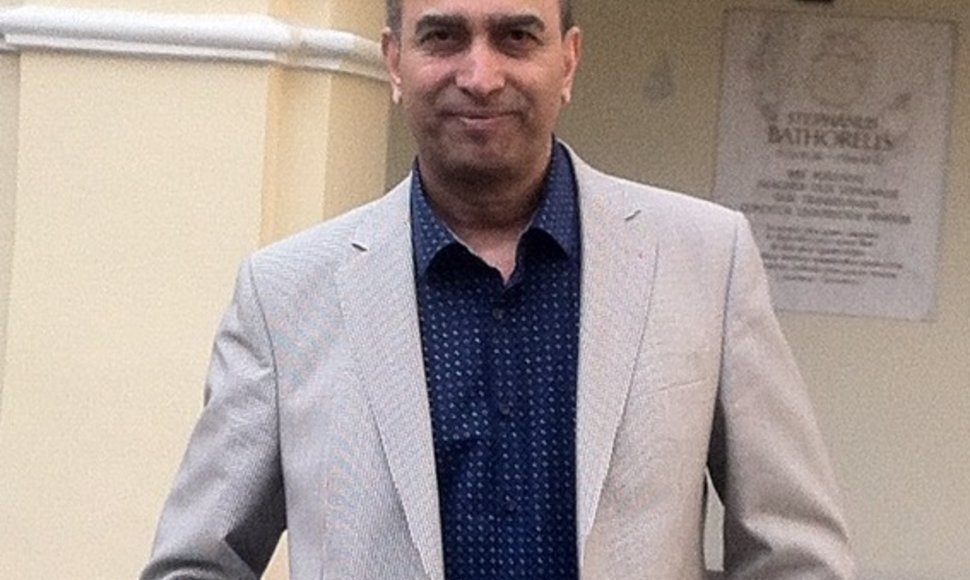He says that the current crisis was to be expected ever since Mohamed Mursi was elected president a year ago but failed to live up to his promises of being everyone's president.
In an interview to 15min, Jumá explains the origins of the current crisis in Egypt and shares his insights into the possible future of one of the most populous countries in the Arabic world.
An organization with an ideology like the Muslim Brotherhood's cannot rule a country where vast majority of the people are secularists.
- What is the current situation in Egypt? How was everything evolving and how did things reach the point we have now?
- Today, the Egyptian people are divided into two camps. The first one represents the supporters of the nearly ninety-year-old fundamentalist organization “Muslim Brotherhood”. The other one represents most of the secular and nationalist parties and figures who resist the ‘islamization’ of the Egyptian society, which took place after the triumph of the Brother’s candidate Mohammed Morsi in the first fair presidential election held in June 2012.
The division became deep and clear in June 30 when millions of people protested over the leadership of the president, accusing him of pursuing an Islamist agenda against the wishes of most Egyptians, and of failing to tackle economic problems.
On the other hand, thousands of the Brothers’ and Morsi’s supporters got to the streets to defend what they called the “legitimate president.” In order not to have a worse situation, the army removed Mr. Morsi from power and installed former chief justice of the Supreme Constitutional Court Adli Mansour as an interim president until new parliamentary and presidential elections are held.
- Was it possible to predict what has happened? Was it possible to avoid such an outcome - could Mursi, for instance have stepped down or the army and the opposition changed their minds?
- Since its founding in 1928, the Muslim Brotherhood (Hizb al-Ikhwan al-Muslimun) has profoundly influenced the political life of Egypt and the Middle East. Its motto is telling: “Allah is our objective. The Prophet is our leader. The Qur’an is our law. Jihad is our way. Dying in the way of Allah is our highest hope”.
An organization with such an ideology cannot rule a country where vast majority of the people are secularists. Nor can it suggest a proper political model through which it can resolve the old-standing economic and social problems of the country.
The popular revolt against former President Hosni Mubarak’s dictatorship gave the well-organized Brotherhood its chance to put to practice its decades-long ideology. But this was clearly a huge challenge for a country that had a largely secular revolt, and for which the latecomer Brotherhood had hijacked, taking it exclusively for itself.
When Mohammed Morsi found himself one of two finalists in last year’s presidential election, he vowed, if elected, to be the president of all Egyptians and not just the president of the Brotherhood. Sure enough, and after winning, he resigned from all organizations connected to the Brotherhood. But this did not last long and he quickly seemed to have lost his independence and started to act as the representative of the Muslim Brotherhood rather than that of all Egyptians.
To avoid more clashes, the army should act as a protector of the ‘second revolution’ and do its best to end the transitional period as fast as possible.
Moreover, Mr. Mursi was affected by some regional powers, such as Turkey and Qatar, who always tried to use the revolutions of the so-called Arab Spring to implement their own agendas in the region. This quickly led to the chants by Egyptians of “Yaskut, yaskut hukm al-murshed” (Down, down with the rule of the guide). Thus, it was impossible for a president affiliated with an extreme fundamentalist ideology to cooperate with different parties and groups in the Egyptian society.
Similarly, it was impossible for the Egyptian people to exchange a secular dictatorship for a religious one. Accordingly, there was no room for compromises between the Muslim Brotherhoods and its opponents.
- Probably the most important question now is what's next? Many people have voted and supported Mursi and they won't disappear. Do you thing the situation will calm down or might it be further heated up?
- It is extremely difficult to predict an end for this conflict. It is hard to believe that such an extreme organization like the Muslim Brotherhood is going to surrender. For many decades, the Muslim Brotherhood has imposed serious threats to the secular rules of Nasir, as-Sadat and Mubarak. The organization has also a long history of carrying terrorist attacks against civilian targets. Taking these facts into account, one can conclude that the peaceful protests could turn into violence.
To avoid more clashes, the army should act as a protector of the ‘second revolution’ and do its best to end the transitional period as fast as possible.
***
Jamal Jumá, peot and researcher, was born in Baghdad (Iraq), but has lived in Denmark since 1984. He graduated with a degree in Arab Literary studies from University of Basrah, later studied Semitic Philology in the University of Copenhagen.
Jumá has published several collections of poetry, translated poems of Danish authors into Arabic. He has also edited and published numerous manuscripts of Erotica, including The Perfumed Garden, A Promenade of the Hearts, and The Forbidden Texts. This infuriated some religious and political establishments around the Arab World, resulting in the confiscation and banning of these books in all Arab countries.
Currently Jumá teaches at the Orientalism Centre of Vilnius University.













